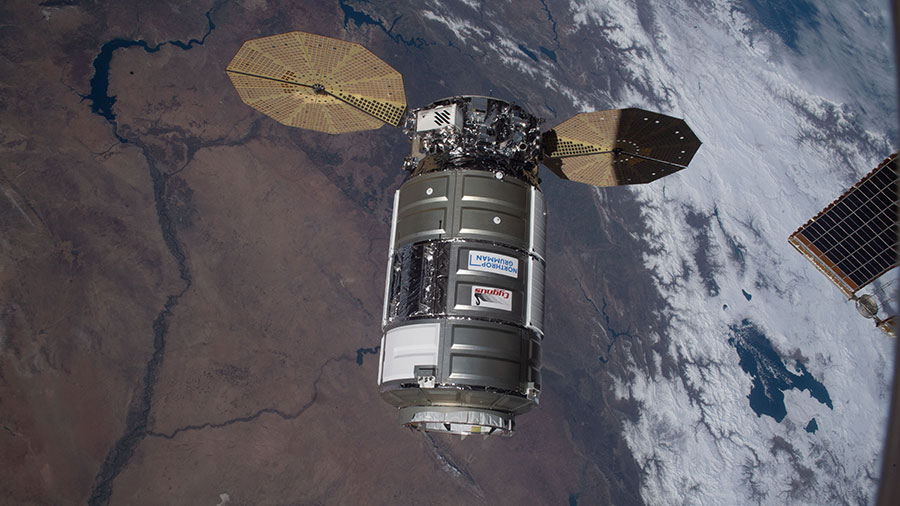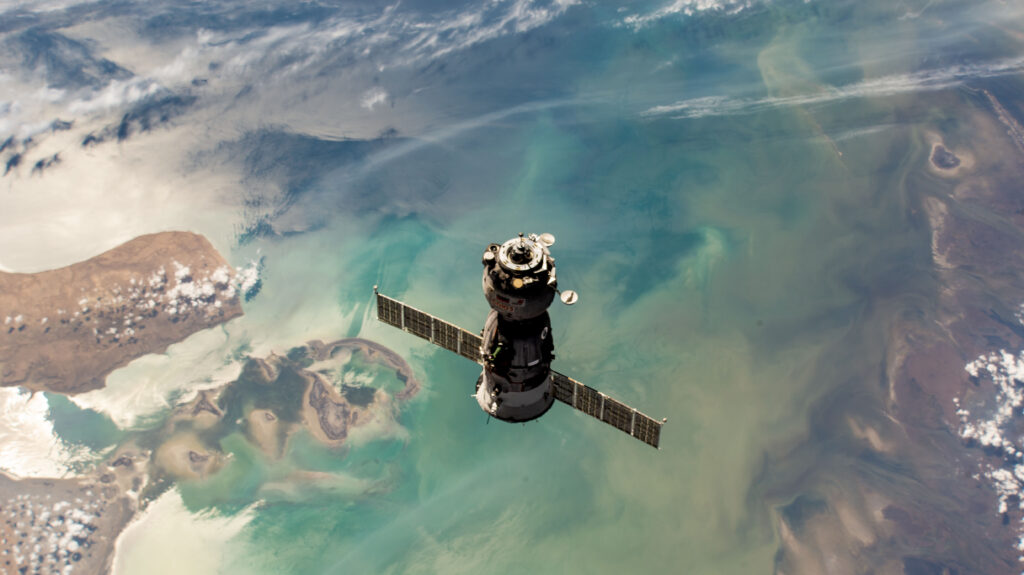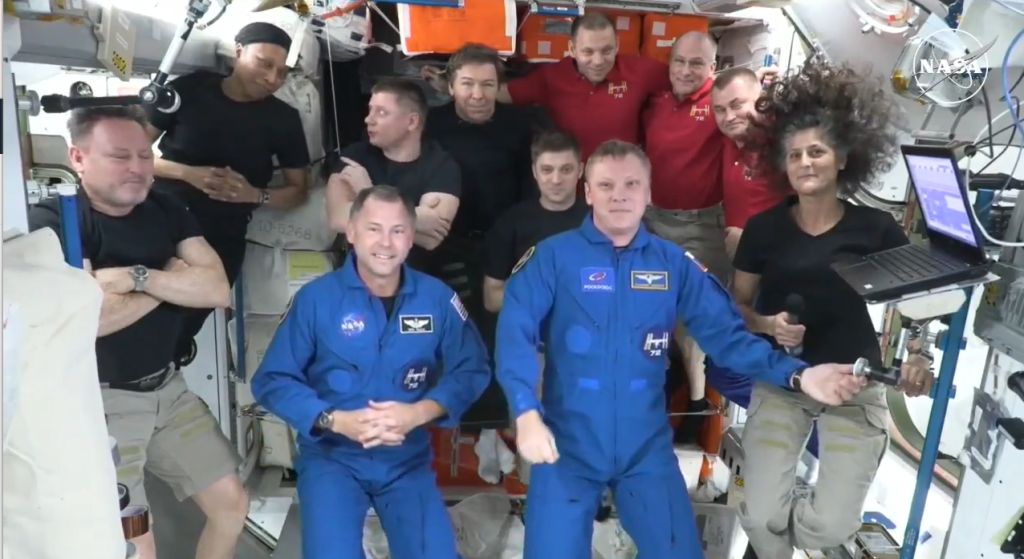
Northrop Grumman’s Cygnus space freighter is orbiting Earth today carrying science and supplies to the International Space Station for delivery on Thursday morning. Meanwhile, the Expedition 70 and Axiom Mission 3 (Ax-3) crews continued working together on Wednesday with a full schedule of biomedical science, physics research, and lab maintenance.
More than 8,200 pounds of science experiments, crew supplies, and station hardware are headed for the orbital lab where NASA Flight Engineers Loral O’Hara and Jasmin Moghbeli will be on duty awaiting the arrival of Cygnus. O’Hara will command the Canadarm2 robotic arm to capture Cygnus at 4:20 a.m. EST on Thursday as Moghbeli monitors the spacecraft’s automated approach and rendezvous. After Cygnus is captured, robotics controllers on the ground will take over command of the Canadarm2 and remotely install Cygnus on the Unity module’s Earth-facing port.
Several hours later, O’Hara and Moghbeli will open Cygnus’ hatch beginning several months of cargo activities. Commander Andreas Mogensen from ESA (European Space Agency) and Flight Engineer Satoshi Furukawa from JAXA (Japan Aerospace Exploration Agency) will then enter and start unloading cargo. The duo will first remove frozen science samples from Cygnus and stow them inside science freezers aboard the station for later analysis.
Meanwhile, the four Expedition 70 astronauts continued ongoing research benefitting humans living on and off the Earth. The quartet also assisted the Ax-3 crewmates as they continued their science-packed agenda in their final week aboard the station.
O’Hara collected tools and set up the Life Science Glovebox for the GMETAL physics investigation that Ax-3 Commander Michael López-Alegría and Mission Specialist Alper Gezeravcı worked on. The Axiom Space duo used the glovebox to study two-phase mixing between solid particles and a gasses under various gravity levels possibly impacting future spacecraft propulsion systems. O’Hara then joined Mogensen at the end of the day for eye exams using standard medical imaging gear found in a doctor’s office on Earth.
Earlier in the day, López-Alegría partnered with Ax-3 Pilot Walter Villadei for blood pressure checks and ultrasound scans observing their blood flow. Ax-3 Mission Specialist Marcus Wandt had a busy day starting with servicing a life support rack in the Tranquility module and training to use the station’s virtual reality hardware and software. Next, he cleaned the Biolab research facility then documented his sleep patterns while wearing a sensor-packed helmet.
Mogensen had a couple of hours blocked off on Wednesday to assist the Ax-3 crew and help the private astronauts continue their familiarization with station systems and life in weightlessness. The two-time ESA astronaut also cleaned the Dragon hatch on the forward port of the Harmony module, tested using virtual reality gear to improve crew mental health, then closed the windows on the cupola.
Moghbeli spent her day photographing and inspecting spacewalk gear and portable safety hardware. Furukawa joined Roscosmos cosmonaut Konstantin Borisov and swapped fuel bottles inside the Combustion Integrated Rack. The pair then split up as Furukawa set up the Mochii microscope for imaging metal samples while Borisov worked on an oxygen generator in the station’s Roscosmos segment.
Veteran cosmonaut Oleg Kononenko was back on inspection duty checking structures and photographing windows in the Zvezda and Nauka modules. Flight Engineer Nikolai Chub began his day with a urine sample collection then recorded his food, drink, and medicine intake. Next, he worked on radio communications gear and orbital plumbing hardware throughout the day.
Learn more about station activities by following the space station blog, @space_station and @ISS_Research on X, as well as the ISS Facebook and ISS Instagram accounts.
Get weekly video highlights at: https://roundupreads.jsc.nasa.gov/videoupdate/
Get the latest from NASA delivered every week. Subscribe here: www.nasa.gov/subscribe




